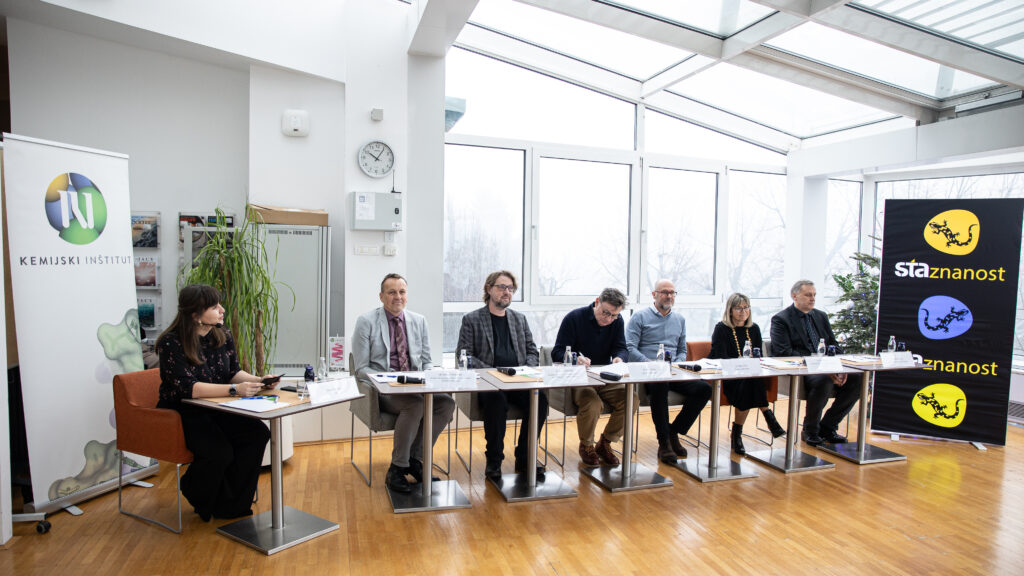At a recent panel discussion entitled “Science in 2023: Shifts, Challenges and Opportunities“, organised by the Slovenian Press Agency in the framework of the STAscience project, the CEOs of research institutions spoke about the outstanding achievements in the field of Slovenian science during this past year, the challenges encountered by researchers in their work, and the prospects for the future.
The panel discussion was attended by the CEO of the National Institute for Chemistry, Gregor Anderluh, PhD, the CEO of the Research Centre of the Slovenian Academy of Sciences and Arts, Oto Luthar, PhD, the CEO of the Institute of Contemporary History, Andrej Pančur, PhD, the CEO of the Science and Research Centre Koper,Rado Pišot, PhD, the CEO of the National Institute for Biology, Maja Ravnikar, PhD, and the CEO of the Jožef Stefan Institute,Boštjan Zalar, PhD.
The CEO of the Science and Research Centre Koper, Rado Pišot, PhD, expressed his belief that a “tectonic shift” has been achieved in the field of science. For the first time, institutes were given the opportunity to autonomously tender programme groups for the next period, meaning that institutions will be able to shape their operations more strategically. Despite these achievements, the CEO highlighted concerns about data transparency, stating that key information is sometimes hidden in a “fog” of unavailable or vaguely presented data.
“We would like to benefit from sustainable systemic solutions that will enable us to calmly prepare for tenders and strategies, as well as from a possibility to solve employment issues in an orderly manner,” added Pišot.
The participants agreed that important steps have been taken towards improving working methods and increasing the autonomy of research institutions. Nevertheless, they also pointed to the pressing shortage of personnel as an important challenge that needs to be addressed to enable further progress of the Slovenian science. The discussion highlighted the need for further cooperation, investment in education, and the creation of a transparent environment for scientists and the public.
The video of the panel discussion is available above.
 en
en Slovenščina
Slovenščina Italiano
Italiano